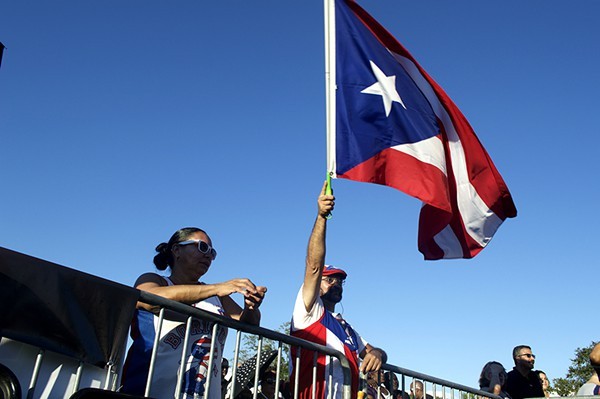
Fewer than 50,000 Puerto Ricans settled in Florida post-Maria, UF study says
Bianca Padró Ocasio
Fewer than 50,000 Puerto Ricans likely relocated to Florida as a result of Hurricane Maria, according to a study released this month.
Analyzing flight passenger data in the months following the storm, the University of Florida’s Bureau of Economic and Business Research found the Puerto Ricanpopulation spike in the state could range from 30,000 to 50,000.
The new figure is significantly lower than was initially estimated in early 2018, as Florida officials relied on lists of passengers landing in several Florida airports from the island to say close to 300,000 Puerto Ricans had arrived to the state.
“Flight passenger arrivals, by themselves, are not a good measure for gauging migration,” UF professor Dr. Stefan Rayer wrote in the study, which was published Oct. 3.
He reported it’s hard to distinguish between travelers and those looking to make a permanent move. Those who later returned are also not counted by that method, he noted.
Instead, he analyzed historical passenger data from 2005 to 2016 for flights between the island and Florida, then compared those figures with the period before and after Maria’s landfall.
Different estimates have been previously drawn from Florida multi-agency resource centers, school enrollments, FEMA applications, U.S. postal service address changes and phone data, Rayer said.
Rayer also looked at how flight passenger data compared at airports in cities outside Florida with the highest number of passengers flying from Puerto Rico, like New York City and Atlanta.
The study concluded that, while the new migration estimates might change with more data, the increase in Puerto Ricans in the state is “substantial,” but “proposed numbers in the hundreds of thousands never seemed credible.”
Rayer said migration directly related to the storm has “largely ended.” He acknowledged that some Puerto Ricans will likely make secondary moves to Florida from other states, but those would not necessarily qualify as “hurricane-related” and they would be “near impossible” to track.
(From the Orlando Sentinel)


